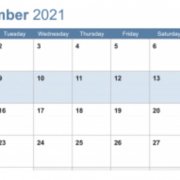7 days in healthcare (January 31-February 6, 2022)

SUMMARY
As far as biomedicine is concerned, the report on the value of death by The Lancet stands out; also the development of the nasal vaccine against COVID; the new horizon of transplants, derived from the possibilities of genetic editing of animal organs; and, the revolution that the new cancer vaccines based on mRNA technology may entail.
In terms of global health, the AstraZeneca vaccine is the most widely used worldwide, due to its contribution to COVAX. More than 2,500 million doses have been placed globally.
In international health policy, the most striking is the study by Johns Hopkins University, which minimizes the effectiveness of confinement, which contrasts with previous studies; the 900,000 deaths from COVID in the United States and the 500,000 in India; the WTO continues to request the release of vaccine patents. In Europe, it is worth highlighting the new clinical trial system approved by the European Union and its new approach to cancer.
National health policy continues to be dominated by COVID. The numbers of cases are decreasing, which speaks of the decline of the “sixth wave”. However, deaths are still very high. The announcement that oncological biomarkers will be included in the portfolio of the National Health System is very important. Cancer mapping in Spain presents very striking results, with a high concentration of cancer incidence in certain geographical areas. Subject to study and act.
In company news, the leading role of venture capital companies is notable, with the large operations underway by Sandoz (a generic and biosimilar branch of Novartis) and IVI (a Spanish fertility company). The interest of private equity companies is concentrated around these companies. Also the acquisition of MIR Asturias by CVC and the Alfonso X University. The attempt by Correos to enter pharmaceutical distribution will bring a tail.
BIOMEDICINE
- Report on the value of death: while in developed countries there is hypertreatment around death, in most countries death occurs without access to basic pain treatment (The Lancet, January 31, 22)
- The nasal vaccine may be better for successive doses. There are a dozen such vaccines in development in phase 3 trials (NYT, February 2, 22)
- The “stealth” variant (stealth) does not generate alarm, but it can slow down the decline in the number of cases (NYT, January 31, 22)
- The sub-variant “ómicron” BA.2, more contagious than the original (FT, 31 January 22)
- The new variant BA.2, already present in 57 countries, according to the WHO (FT, February 3, 22)
- New variant of the HIV virus, discovered in the Netherlands (FT, February 3, 22)
- Genetic editing of pig hearts: a new horizon for transplants (FT, February 2, 22)
- Cancer vaccines: the new mRNA revolution (El País, Vozpópuli, February 4, 22)
- Amidst the wide debate on abortion, a simple pill seems the most viable option (The Economist, 5 February 22)
GLOBAL HEALTH
- AstraZeneca, the most distributed vaccine through COVAX, has already given 2,500 million doses worldwide (ConSalud, January 31, 22)
- Humanitarian groups denounce that sanctions against Mali may have very adverse health consequences (The Lancet, February 5, 22)
INTERNATIONAL HEALTH POLICY
- COVID
o A study by Johns Hopkins University (Applied Economics Studies magazine) questions the effectiveness of confinement in reducing mortality, which contrasts with the analysis published in Nature in June 2020, which estimates that three million deaths have been prevented in Europe by confinement, 450,000 in Spain (El Independiente, February 3, 22)
o The UK approves the Novavax vaccine (FT, 3 February 22)
o The American army begins to fire its members who refuse the vaccine (The Guardian, February 2, 22)
o The New Zealand border will be reopened in phases from the end of February, the Prime Minister announces (The Guardian, 2 February 22)
o The United States reaches 900,000 deaths from COVID (The Guardian, February 4, 22)
o India exceeds 500,000 deaths from COVID (The Guardian, February 4, 22)
o Europe facing a “long period of tranquility” in the pandemic, says the WHO, due to the lesser severity of the “ómicron” variant, the high percentages of immunization and the good weather (The Guardian, February 3, 22)
o The WTO (World Trade Organization) wants an agreement to release vaccine patents this month (El Español, February 1, 22)
o The German Vaccine Commission recommends the fourth dose for vulnerable and health groups (El País, February 3, 22)
o Beijing seals off several communities for two cases of COVID (The Guardian, January 31, 22)
o The COVID vaccine is already mandatory in Austria, with a great social fracture (Expansión, February 5, 22)
- Other issues
o New clinical trial system in Europe, which Farmaindustria sees as an opportunity (diariofarma, February 1, 22)
o The EU will act against inequalities against cancer (ConSalud, February 3, 22)
NATIONAL HEALTH POLICY (SPAIN)
- COVID
o The sixth wave is being left behind, the cases and hospitalizations are slowing down, although not the deaths that already exceed 6,000 since November (El País, February 5, 22)
o The mask outdoors will no longer be mandatory from next Thursday (El País, February 4, 22)
o Health has not yet closed the purchase of 344,000 doses of Paxlovid (El Español, February 3, 22)
o The AEM authorizes the HIPRA vaccine to go to phase 3 of clinical trials (The Objective, February 1, 22)
- Political ads
o The new public health center, affected by the decentralization of public offices (diariofarma, February 1, 22)
o The approval of oncological biomarkers, announced as a pending objective of the expansion of the NHS portfolio (diariofarma, February 1, 22)
o The Minister of Health says that the Anti-Tobacco Law needs to be updated (ConSalud, February 4, 22)
- Other issues
o 27% of pharmaceutical innovations approved in 2021, subject to special financing conditions (diariofarma, February 1, 22)
o Access to new cancer drugs takes more than 19 months in Spain, while in Germany it takes two months, according to doctors and patients (La Vanguardia, February 2, 22)
o Health plan to make rural pharmacies more viable (ConSalud, January 28, 2022)
o The private e-prescription is consolidated (diariofarma, February 2, 22)
o The cartography of cancer in Spain has been published, with very striking results, according to the “Atlas of Cancer Mortality in Portugal and Spain” (El Periódico de España, February 5, 22)
COMPANIES, EMPLOYERS AND OTHER AGENTS IN THE SECTOR
- American pharmaceutical companies (J&J and three of the largest drug distributors in the United States) agree to pay 590 million dollars to Native Americans for the opioid crisis (El País, February 1, 22)
- Pharmaceutical cold distribution, new Correos service (Redacción Médica, February 2, 22)
- Pfizer-Biontech requests authorization from the FDA for the approval of the vaccine for children under 5 years of age (El País, February 1, 22)
- Private equity companies consider offers of more than 25,000 million dollars for the generics unit of Novartis, Sandoz, Blackstone, Carlyle and EQT, among the most interested (FT, February 1, 22)
- KKR, CVC, Permira, Bain, Carlyle and PAI outline their bids to take over the fertility company of Valencian origin IVI, the bids range from 1,500 million euros (CincoDías, January 31, 22)
- Atrys enters the continuous market, as of February 7 (PlantaDoce, February 3, 22)
- Sanitas gains ground and plans to open 7 rehabilitation centers in 2022 (PlantaDoce, February 1, 22)
- Adeslas and Caixabank extend their agreement in the Bankia network for 650 million euros (CincoDías, January 27, 22)
- MIR Asturias acquired by CVC and Alfonso X University (La Nueva España, February 3, 22)
- Quirón acquires Clínicas Vida and strengthens its care network in Tenerife (PlantaDoce, January 28, 22)
- Vitaldent expands throughout Andalusia and opens a new clinic in Benalmádena (PlantaDoce, February 3, 22)
- Group 5 opens a residence for serious mental disorders in Madrid (PlantaDoce, February 3, 22)
- Prim is reinforced with the purchase of Herbitas laboratories (Expansión, February 4, 22)
- Pharmamar leads a consortium of companies for the development of advanced therapies (El Economista, February 3, 22)



